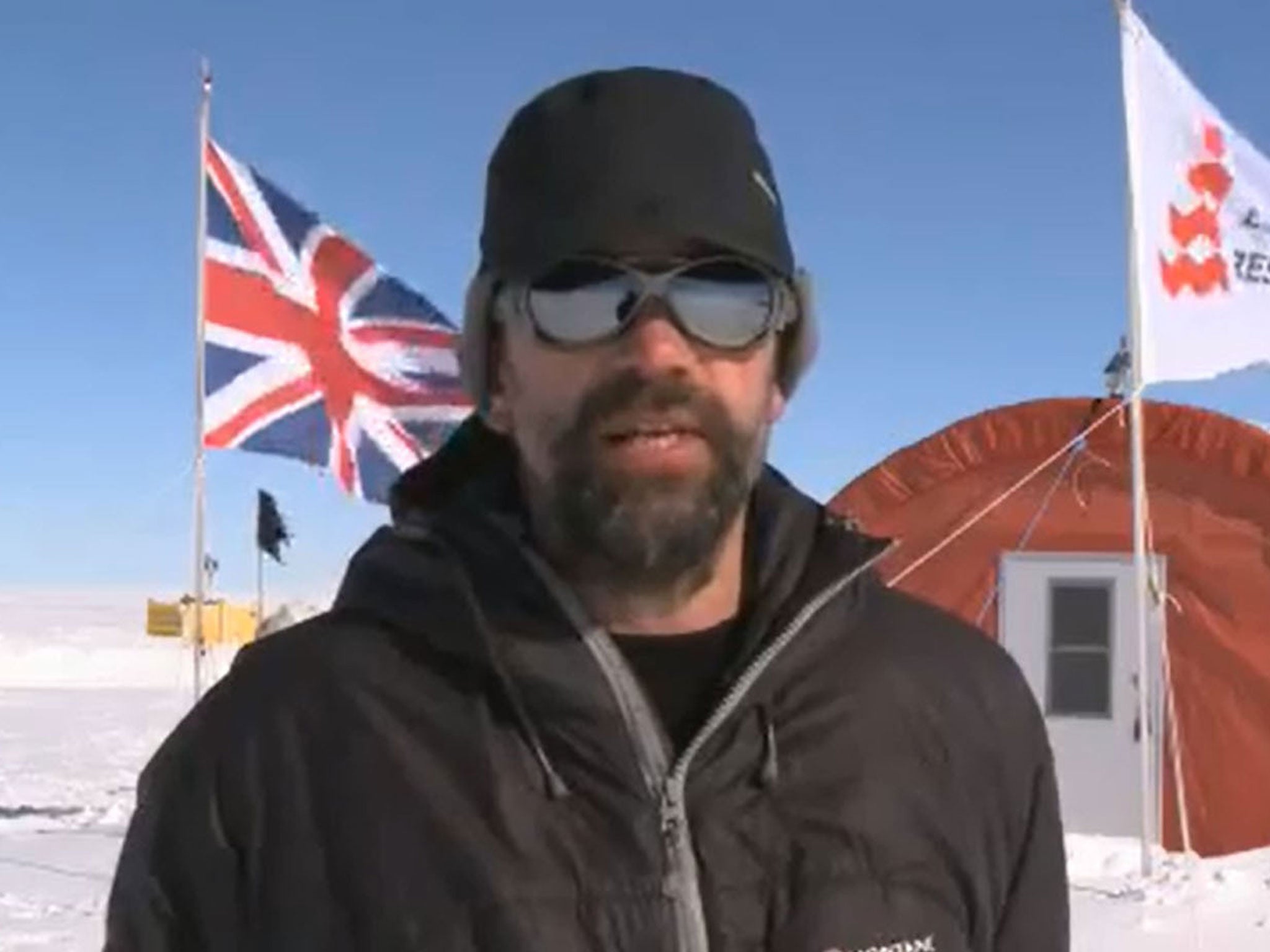Scientists halt quest for 'lost world' under Antarctic ice
Lack of hot water and fuel force British team to abandon £8m search for life in sub-glacial lake

An ambitious plan to drill through an Antarctic ice sheet two miles thick in order to search for microbial life in a sub-glacial lake had to be abandoned on Christmas Day because of a technical problem. But scientists have vowed to do everything they can to complete the mission if they can return to the site in two or three years’ time.
Scientists from the British Antarctic Survey announced that they had to call off their attempt to reach Lake Ellsworth using a hot-water drill because they had run out of both hot water and the fuel needed to create a borehole two-miles deep.
An unidentified technical problem meant that the scientists were unable to connect the main borehole to a cavity of melt-water they had deliberately created 300 metres under the surface of the ice sheet. The weight of the water in the cavity was supposed to balance the enormous pressures within the main borehole once it had penetrated the sub-glacial lake.
“A real point was reached when we had completely depleted our stocks of water which unfortunately we couldn’t replenish in time, and in addition we had depleted our fuel. It was not a difficult decision to take because it was made for us,” said Chris Hill, the expedition’s leader, in a satellite phone call to The Independent.
“Obviously everyone on the site is disappointed that we cannot do what we came here to complete. But we are being pragmatic about it and have to accept the situation. We are now concentrating on packing up and regrouping,” Dr Hill said.
Professor Martin Siegert of Bristol University, the principal investigator on the mission, had to make the difficult decision to abandon the attempt to reach Lake Ellsworth in the early hours of Christmas Day UK time. It came just a few days after receiving spare parts for the main boiler, which had broken down last week.
“Although circumstances have not worked out as we would have wished, I am confident that through the huge efforts of the field team, and our colleagues in the UK, we have done as much as we possibly could have done,” Professor Siegert said.
“Once back in the UK I will gather our consortium to seek ways in which our research efforts may continue. I remain confident that we will unlock the secrets of Lake Ellsworth in coming seasons,” he said.
The first borehole used to create the cavity of melt-water appeared to have worked well. A second, main borehole drilled just two metres away should have made a connection with the cavity, but this did not occur, Dr Hill said.
“Both boreholes reached a depth of 300 metres and there should have been an automatic connection between them but this didn’t happen. It is possible that the second borehole may have wandered of course but we won’t know what happened until we have chance to study it,” Dr Hill said.
The team had spent 20 hours trying to make connection between the boreholes and in doing so they used up all their store of melt-water at the surface. In addition, calculations showed that they did not have enough fuel to continue with a second borehole to reach the sub-glacial lake two miles below the surface of the ice sheet.
Dr Hill said that the drilling equipment will be taken back to the base campsite where much of it will be put into over-winter storage for use in another drilling attempt, probably in two or three years’ time. “We have every intention of coming back,” he said.
Join our commenting forum
Join thought-provoking conversations, follow other Independent readers and see their replies
Comments
Bookmark popover
Removed from bookmarks